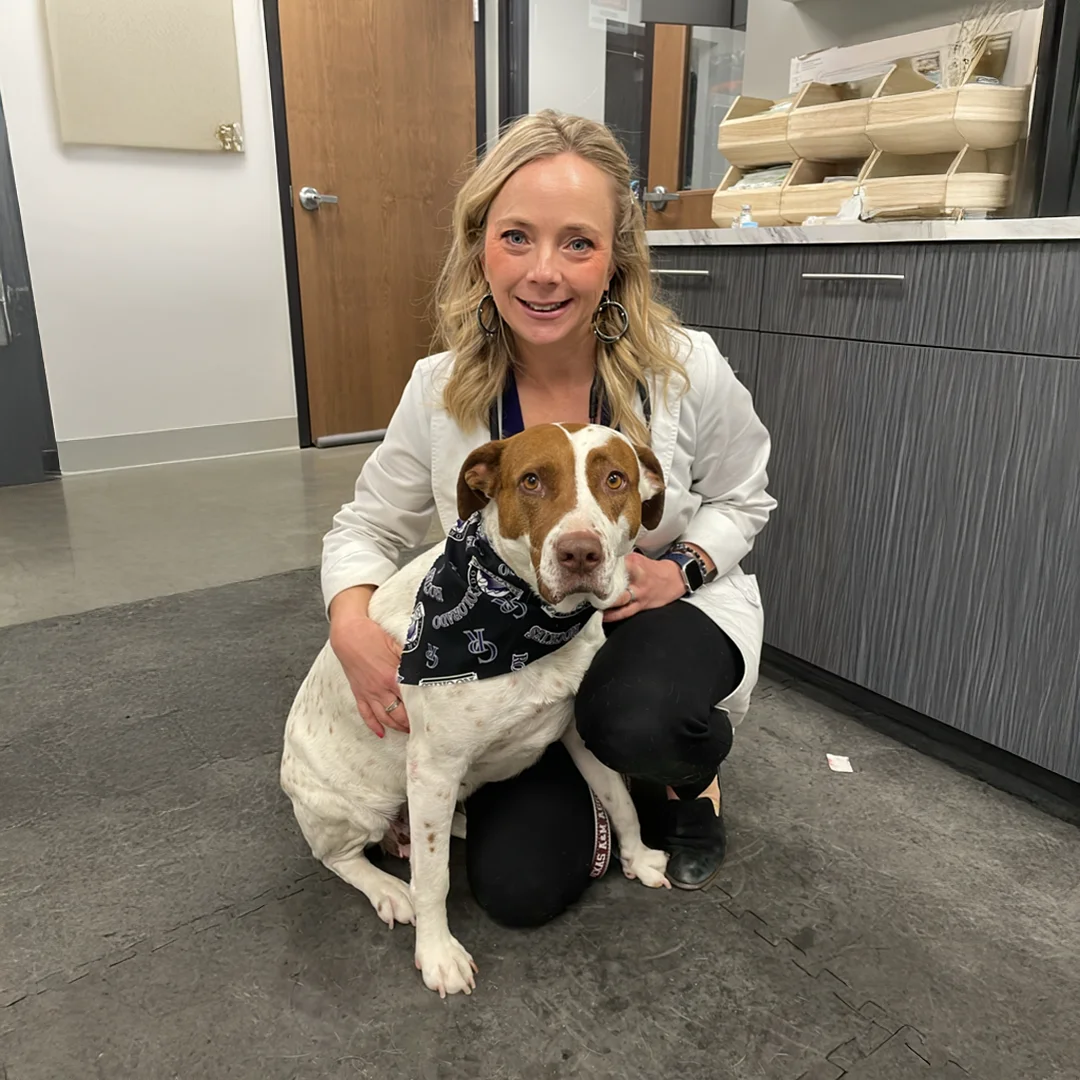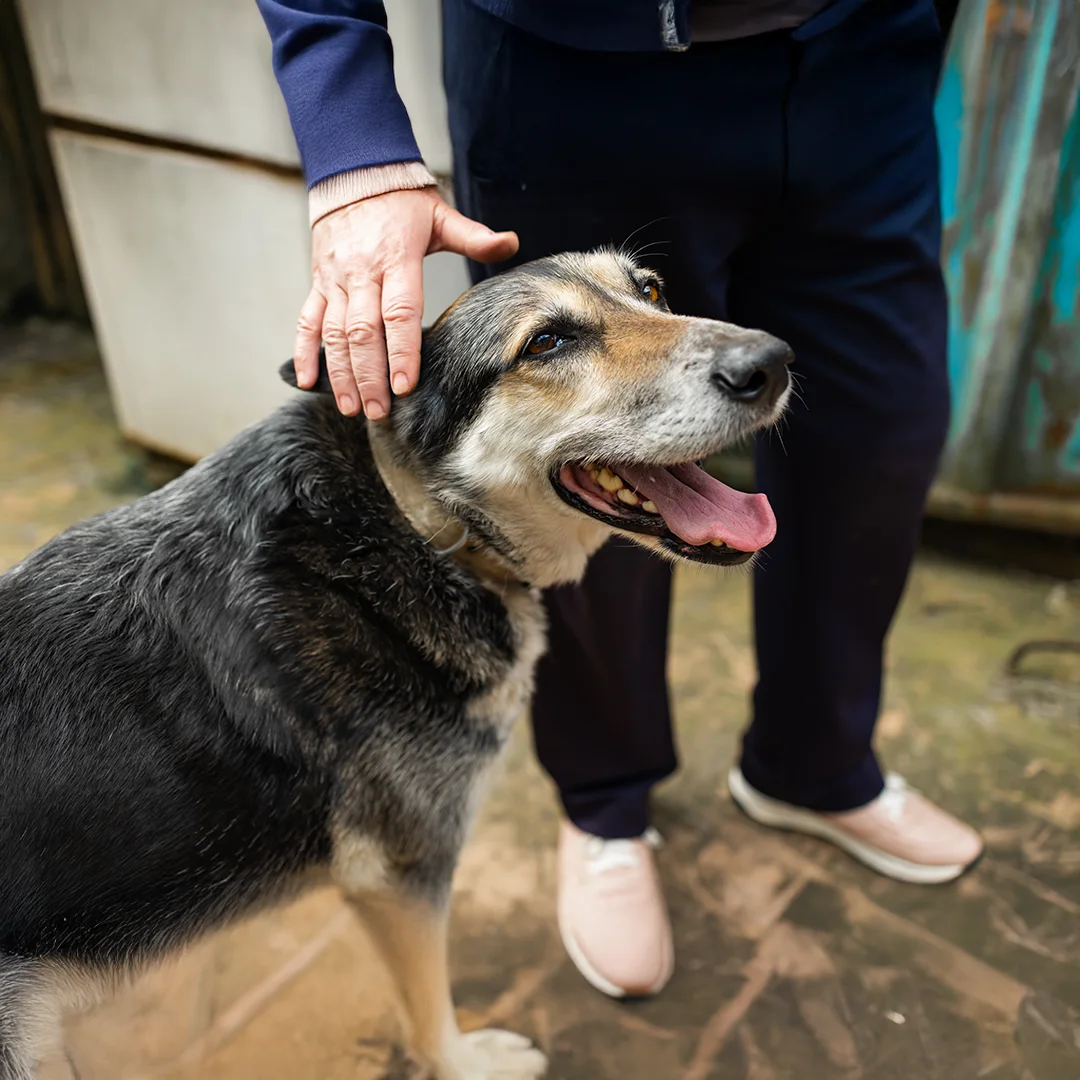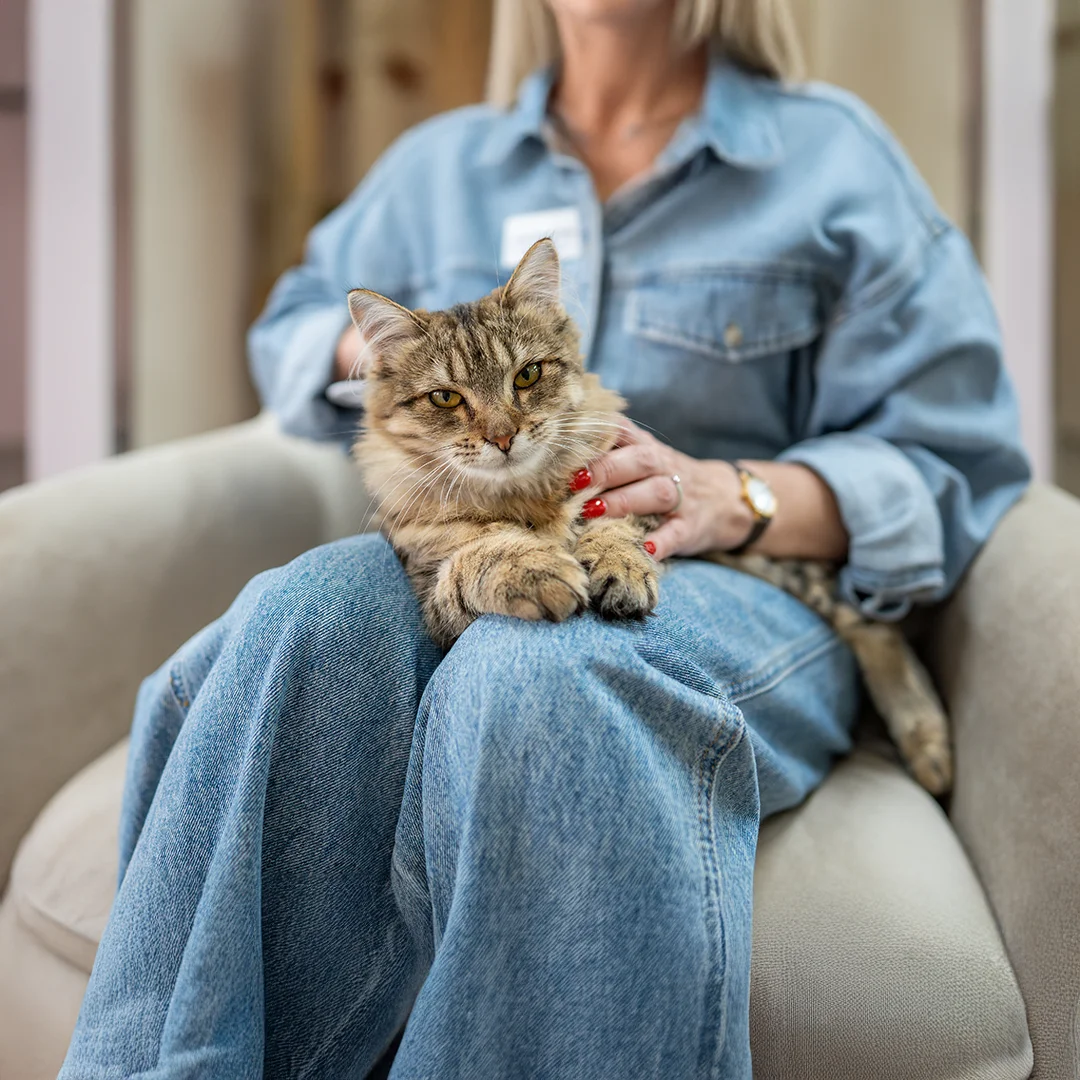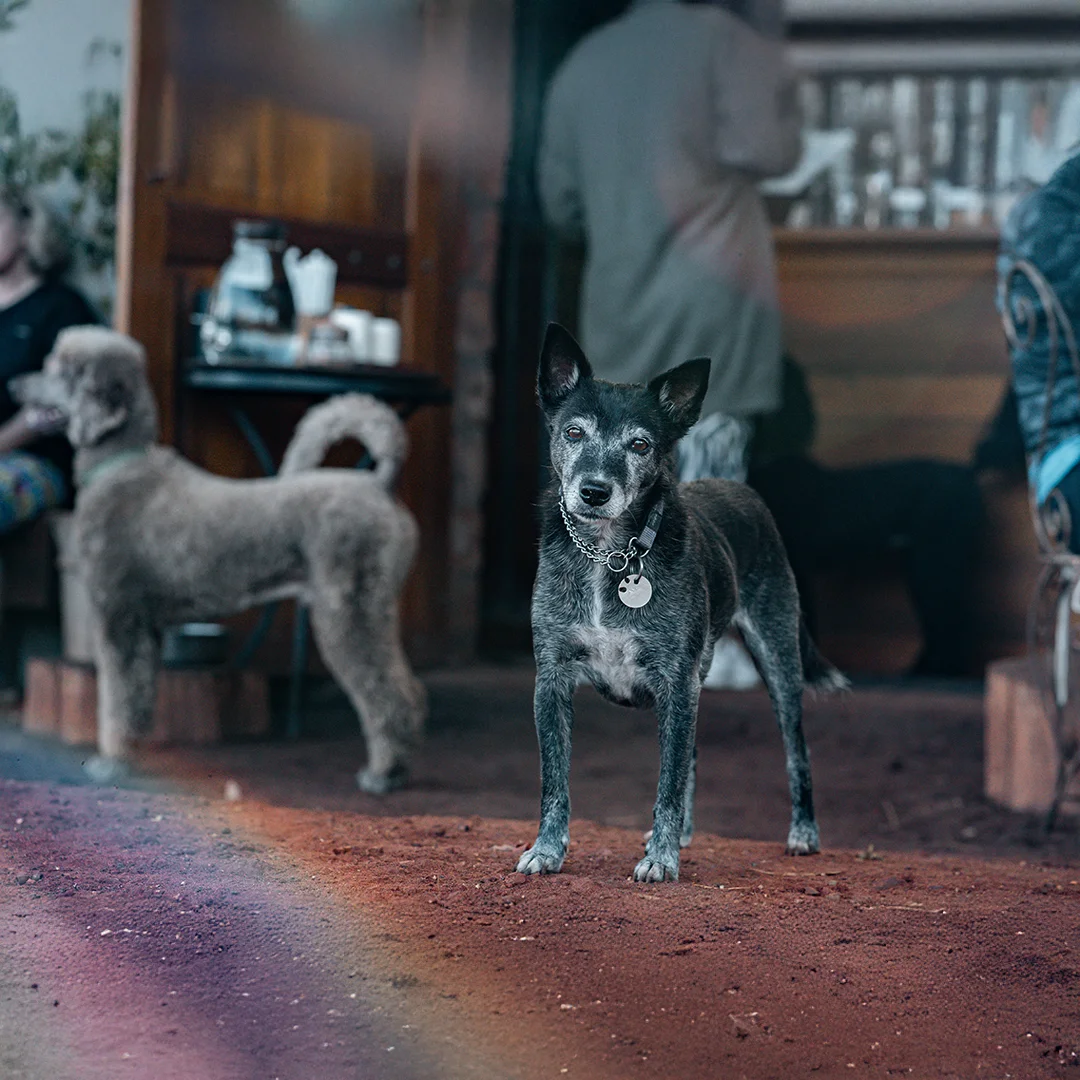
Senior Pet Care in Highlands Ranch, CO
We offer personalized senior pet care to support aging cats and dogs with compassionate wellness, early disease detection, and comfort-focused treatment.
Compassionate Care for Aging Pets
At Altitude Animal Hospital, we’re here to help your beloved dog or cat live their longest, healthiest, and most comfortable life. As pets age, they experience both subtle and significant changes in their physical and mental health. Our team is trained to recognize these shifts early, offering personalized care and support that evolves with your pet’s needs.
Your senior pet has been by your side through every chapter of life. Now it’s our turn to help you return that love with attentive, expert veterinary care.
Common Age-Related Conditions in Senior Pets
Joint Pain & Arthritis
Arthritis in dogs and cats often develops gradually. While limping is a clear sign, many pets show more subtle indicators of joint pain:
Dogs may exhibit:
- Slower pace on walks
- Difficulty rising from rest
- Pacing or whining at night
- Hesitation with stairs
- Involuntary trembling or stiffness
Cats may show:
- Reluctance to jump
- Hiding or decreased grooming
- Soiling outside the litter box
- Sensitivity to touch
Home Management Tips:
- Weight management
- Low-impact exercise (walking, swimming)
- Ramps or steps for furniture
- Rugs for traction
- Elevated food/water bowls
- Modified litter boxes for cats
Pain Management Options at Altitude Animal Hospital
We offer a full suite of options to manage pain and improve mobility, including:
- Joint supplements
- Prescription pain medications
- Laser therapy
- Nutritional counseling
Cognitive Decline, Anxiety & Behavior Changes
As pets age, cognitive dysfunction and anxiety can lead to changes in behavior and personality. Signs may include:
- Confusion or disorientation
- Restlessness or pacing
- Nighttime vocalizations
- Increased agitation or withdrawal
Home Strategies:
- Keep routines consistent
- Use calming pheromone sprays
- Try Thundershirts or white noise machines
- Offer interactive toys or brain games
How We Help:
We can recommend supplements or medications to ease anxiety and support cognitive health, tailoring the plan to your pet’s condition and your home life.

Kidney Disease in Senior Pets
Early Signs May Include:
- Increased thirst or urination
- Vomiting or weight loss
- Lethargy or loss of appetite
Diagnosis & Management:
We recommend annual lab work for pets over age seven—including blood, urine, and blood pressure testing—to catch kidney changes early. If renal disease is detected, we’ll recommend tailored dietary changes, supplements, and ongoing monitoring to manage progression and preserve quality of life.
Cancer in Older Dogs and Cats
Warning Signs:
- Lumps or bumps
- Decreased energy or appetite
- Hiding or withdrawal
- Pain or coughing
Diagnosis & Treatment:
We may perform a fine needle aspirate, biopsy, X-rays, or ultrasounds to identify cancer and guide the best treatment—whether that’s surgical removal, chemotherapy, or supportive care.


Heart Disease in Senior Pets
Common Symptoms:
- Persistent coughing
- Labored breathing or panting
- Fatigue or weakness
How We Diagnose & Treat:
Heart conditions are often identified during routine exams. If a murmur or arrhythmia is detected, we may coordinate care with a board-certified veterinary cardiologist. Treatment plans are customized based on your pet’s condition and may include medications and lifestyle adjustments.
Hearing & Vision Loss
Clinical Signs:
- Bumping into objects
- Difficulty finding food or water
- Agitation or confusion
- Hesitation in low light
- Ignoring commands or not responding to name
Helping Your Pet at Home:
- Keep furniture layouts consistent
- Use nightlights in dim areas
- Add steps or ramps for access to furniture
- Enhance tactile and auditory cues where possible
Geriatric Questionnaire
We encourage all pet parents with senior dogs and cats to complete our Geriatric Questionnaire before their appointment. This helps us better understand your pet’s lifestyle, symptoms, and care needs.
